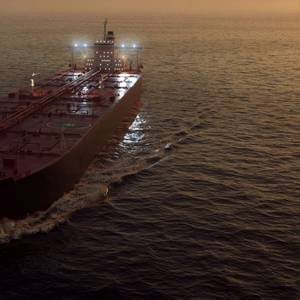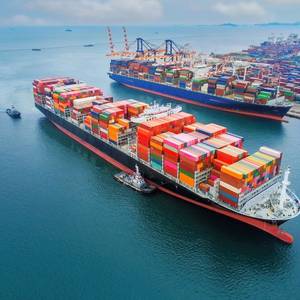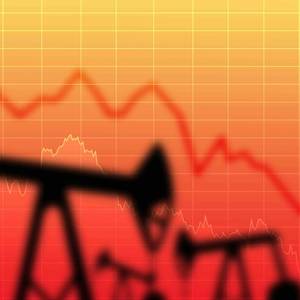
The U.S. has seized a sanctioned oil tanker off the coast of Venezuela, President Donald Trump said on Wednesday, a move that sent oil prices higher and sharply escalated tensions between Washington and Caracas"We've just seized a tanker on the coast of Venezuela, large tanker, very large, largest one ever, actually, and other things are happening," said Trump

At least two supertankers made U-turns near the Strait of Hormuz following U.S. military strikes on Iran, shiptracking data shows, as more than a week of violence in the region prompts vessels to speed, pause, or alter their journeys.Washington's decision to join Israel's attacks on Iran has stoked fears that Iran could retaliate by closing the strait between Iran and Oman through which around

While global energy markets are not yet pricing in worst-case scenarios for the Israel-Iran war, oil tanker rates are providing a good real-time gauge of the escalating risks.Geopolitical risk has spiked following Israel's surprise bombardment of the Islamic Republic last Friday and Iran's retaliatory ballistic missile strikes, leading to a rally in global energy prices

When tensions rise in the Middle East, it can be helpful to look at what is not happening as much as what is.In the crude oil market, this means focusing on the fact that so far not a single barrel of crude oil supply has been lost. It is in the interests of all involved parties that this remains the case.

The global economy is bracing for renewed turbulence following U.S. President Donald Trump’s announcement on Wednesday of sweeping new tariffs, triggering fears of a global trade war and sparking immediate market and political reactions.According to the White House, the new measures include a 10% minimum tariff on most imported goods, with certain products - particularly those from major U.S.

Oil prices climbed about 3% to a five-month high on Thursday on rising concerns that global supplies could be disrupted if the U.S. decides to attack Iran, one of the biggest crude producers in OPEC.Brent futures rose $2.10, or 3.1%, to $70.50 a barrel by 11:07 a.m. EST (1607 GMT), while U.S. West Texas Intermediate (WTI) gained $2.09, or 3.3%, to $65.30.

Oil prices fell slightly on Monday after Iran said it had total control following the biggest anti-government demonstrations in years, easing some concerns over supply, while investors also weighed efforts to resume oil exports from Venezuela.Brent crude futures lost 28 cents, or 0.44%, to $63.06 a barrel by 1402 GMT while U.S. West Texas Intermediate crude was at $58.

Oil prices dipped on their first trading day of 2026 after registering their biggest annual loss since 2020 as investors weighed oversupply concerns against geopolitical risks, including the war in Ukraine and Venezuela exports.Brent crude futures lost 55 cents to $60.29 a barrel by 11:16 a.m. ET (1616 GMT) on Friday while U.S. West Texas Intermediate crude was down 53 cents at $56.89.

Oil prices steadied on the first day of trade in 2026 after registering their biggest annual loss since 2020 as investors weighed oversupply concerns against geopolitical risks including the war in Ukraine and Venezuela exports.Brent crude futures LCOc1 dropped 4 cents on Friday to $60.81 a barrel by 1029 GMT while U.S. West Texas Intermediate crude CLc1 was down 3 cents at $57.39.

Discounts for Russian flagship Urals crude in Indian ports have tripled since August against dated Brent as U.S. sanctions drive key buyers away from Moscow-supplied oil, three sources involved in the trade said.The United States last month imposed its toughest sanctions yet on Russia’s energy sector, targeting oil majors Lukoil and Rosneft.

Oil prices edged higher on Monday as investors assessed moves aimed at ending the U.S. government shutdown while concerns around oversupply in the crude market persisted.Brent crude futures rose 43 cents, or around 0.7%, to $64.06 a barrel by 1409 GMT. U.S. West Texas Intermediate crude was at $60.18 a barrel, also up about 43 cents or 0.7%.The U.S.

According to the Congreassional Record, Brent Sadler, of Virginia, was nominated to be Administrator of the Maritime Administration.The following is his biography as presented on The Heritage Foundation site:Sadler is a Senior Research Fellow, Naval Warfare and Advanced Technology, Allison Center for National Security.